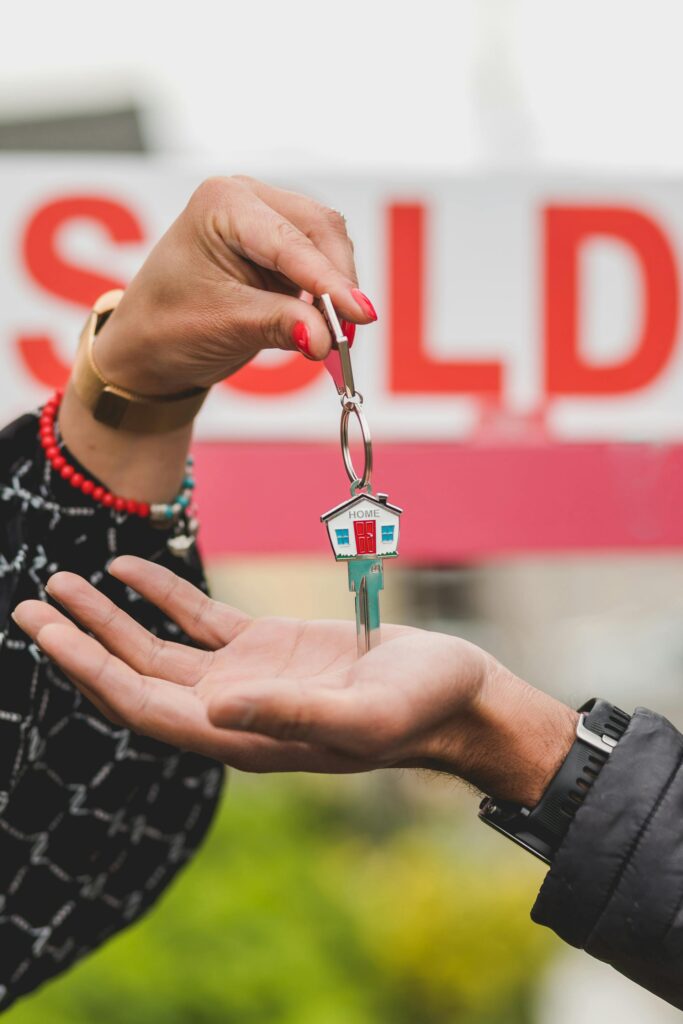
Illustrative image of ‘access’
Mr Samuel had finally saved enough to buy his dream plot in Lagos. He was tired of renting and wanted a piece of land to call his own. One day, he came across a well-dressed agent who promised him a juicy deal—a prime piece of land in Ibeju-Lekki at an unbelievably low price.
The agent assured him that everything was “clean.” No Omo Onile drama, no government wahala.Mr. Samuel was excited. He visited the land once, saw a few other buyers inspecting, and felt reassured.
Without conducting any serious checks, he quickly made payment. The agent even arranged for a “lawyer” to draft a deed of assignment. Everything seemed perfect.Two months later, Mr. Samuel decided to start building.
That was when the nightmare began.A group of fierce-looking men stormed the site, shouting that the land belonged to their family. They claimed they never sold it to anyone. Confused and scared, Mr. Samuel tried calling the agent—his number was switched off.
The “lawyer” who drafted his deed had disappeared too. He went to the Lagos State Land Registry, only to discover that the land was government-acquired.Mr. Samuel had lost everything.
His hard-earned savings, his dreams, and his peace of mind.This could have been avoided if only he had done proper due diligence before paying.
What is Due Diligence in Real Estate?Due diligence means verifying everything about a property before committing to buy it. It’s like running a background check to make sure you are not about to throw your money into a trap.
Lagos is notorious for real estate fraud—Omo Onile disputes, fake land documents, and government-acquired properties being resold illegally. One wrong move and you could lose millions.So, before you pay a kobo, here are the critical things you must check:
Lagos is notorious for real estate fraud—Omo Onile disputes, fake land documents, and government-acquired properties being resold illegally. One wrong move and you could lose millions.
So, before you pay a kobo, here are the critical things you must check:
- Confirm Ownership: Who Really Owns the Land? Never assume the person selling the land is the real owner. People sell land they don’t own every day in Lagos. Some are tenants or relatives of the real owner, while others are pure scammers.
What to Do: - Ask for the title documents (C of O, Deed of Assignment, Governor’s Consent, or Survey Plan).
- Go to the Lagos State Land Registry (Alausa) to verify the document. If the land is not registered, don’t buy it.
If it’s family land, ensure all family members involved sign the documents to avoid future disputes. - Verify Land Title and Documents
Even if the seller shows you a C of O, don’t trust it blindly. Fake C of Os and land documents flood the market. Some lands also have government restrictions, meaning they can be demolished anytime.What to do:
Conduct a search at the Lagos State Lands Bureau to verify if the title is genuine.
Cross-check survey plans at the Office of the Surveyor-General to confirm the land’s coordinates and whether it falls under government acquisition.
Engage a trusted real estate lawyer to help you review the documents. - Check for Government Acquisition Issues
Lagos State is aggressive when it comes to land acquisition. Some lands are meant for future government projects but are still being illegally sold to unsuspecting buyers.
What to Do:
Visit the Lagos State Ministry of Physical Planning and Urban Development to check if the land is under acquisition.
Avoid lands tagged as “committed”—this means the government has already planned something for that area. - Conduct a Physical Inspection—Don’t Rely on Photos
Many buyers have fallen victim to real estate scams because they paid for land they never saw. Some agents take buyers to a different land, collect money, and disappear.
What to Do:
Visit the land multiple times—morning, afternoon, and evening.
Talk to neighbors and ask questions about the land’s history.
Check for any signs of disputes (e.g., different people laying claims to the land). - Avoid Verbal Agreements—Everything Must Be in Writing
Many people have lost money because they trusted verbal agreements. Some sellers will promise you land and later deny ever meeting you.
What to Do:
Ensure you have a proper sales agreement signed by both parties.
The agreement should be prepared by a trusted lawyer, not the seller’s lawyer (to avoid conflict of interest).
Every payment must be documented, and receipts issued. - Investigate the Seller or Real Estate Company
Some real estate companies in Lagos operate like Ponzi schemes. They sell lands that don’t belong to them, promising fake allocations.
What to Do:
Research the company’s history and reviews from past buyers.
Confirm their RC number and check if they are registered with CAC.
Visit their physical office and ask tough questions. - Beware of Omo Onile Wahala
Omo Onile (land grabbers) can frustrate landowners with illegal fees and disturbances. They can show up after purchase, demanding extra money or threatening to seize the land.
What to Do:
Buy land in secured estates to avoid Omo Onile drama.
If buying directly from a family, ensure ALL
